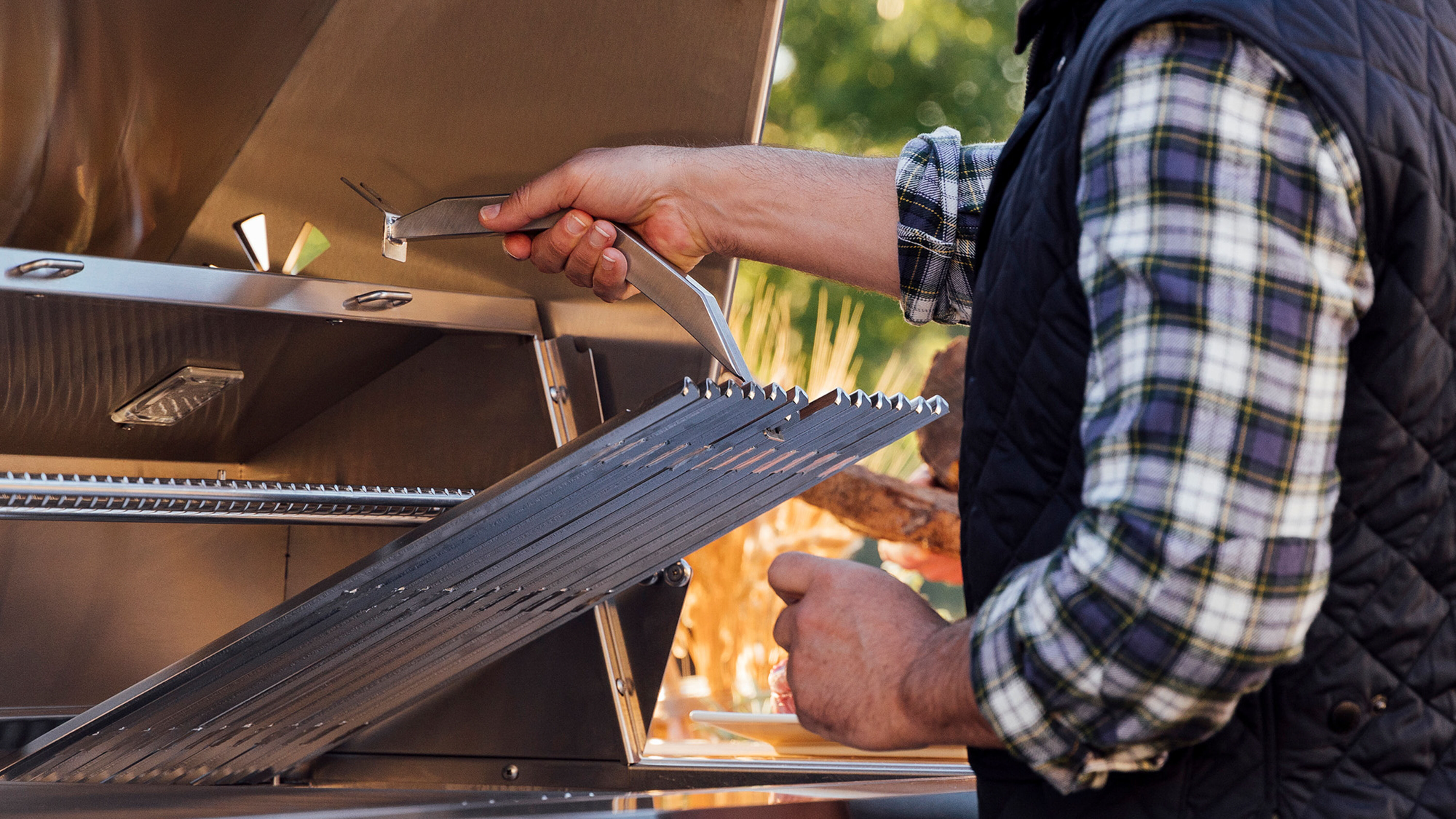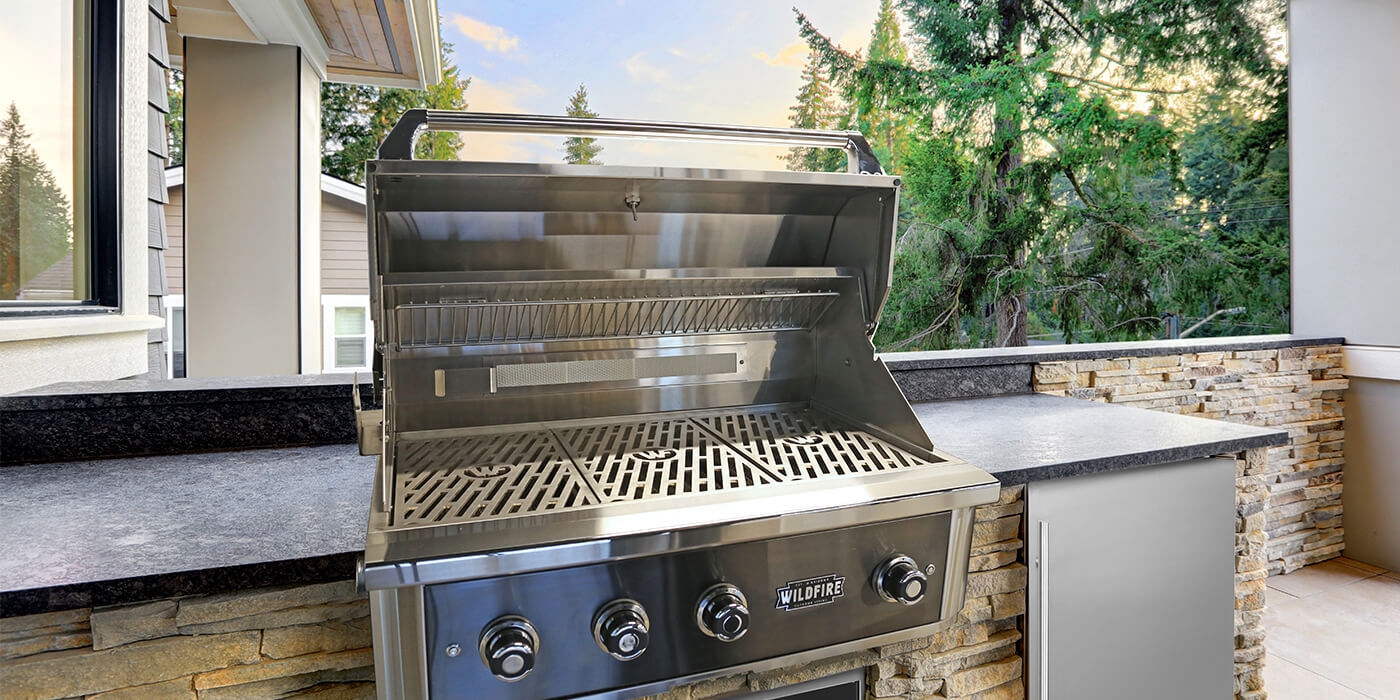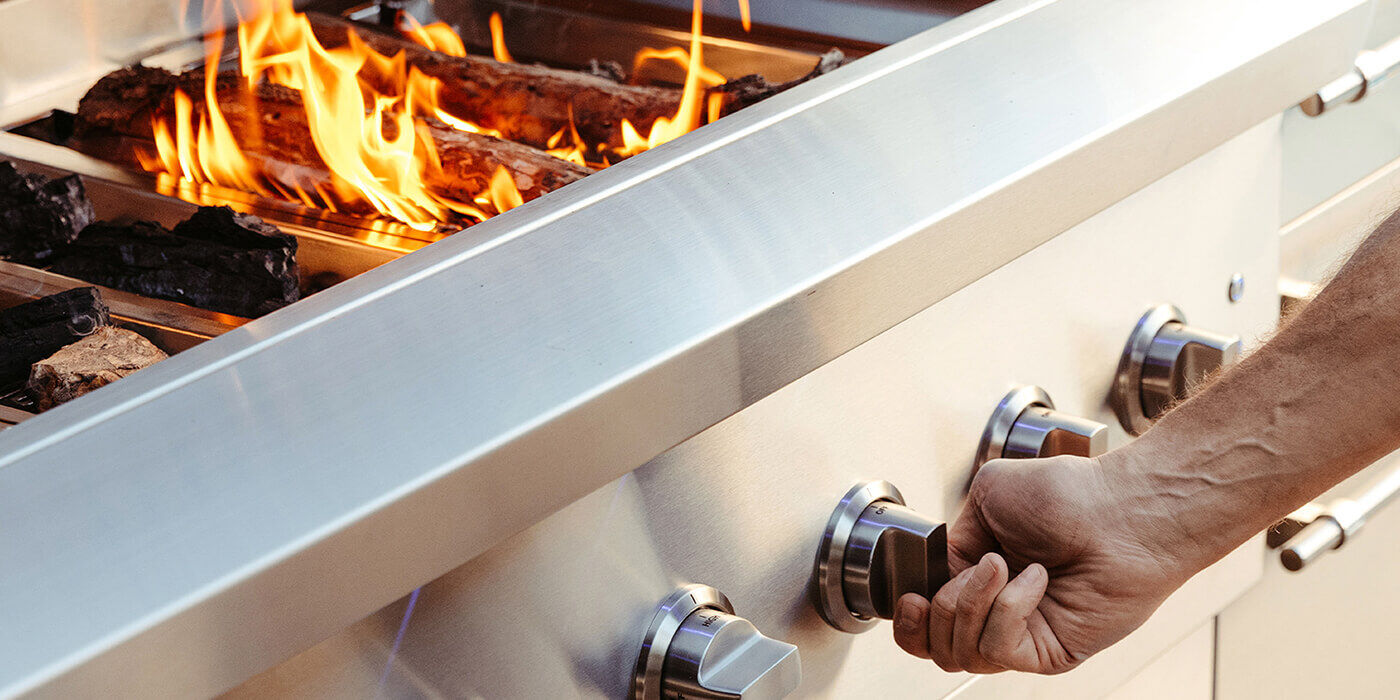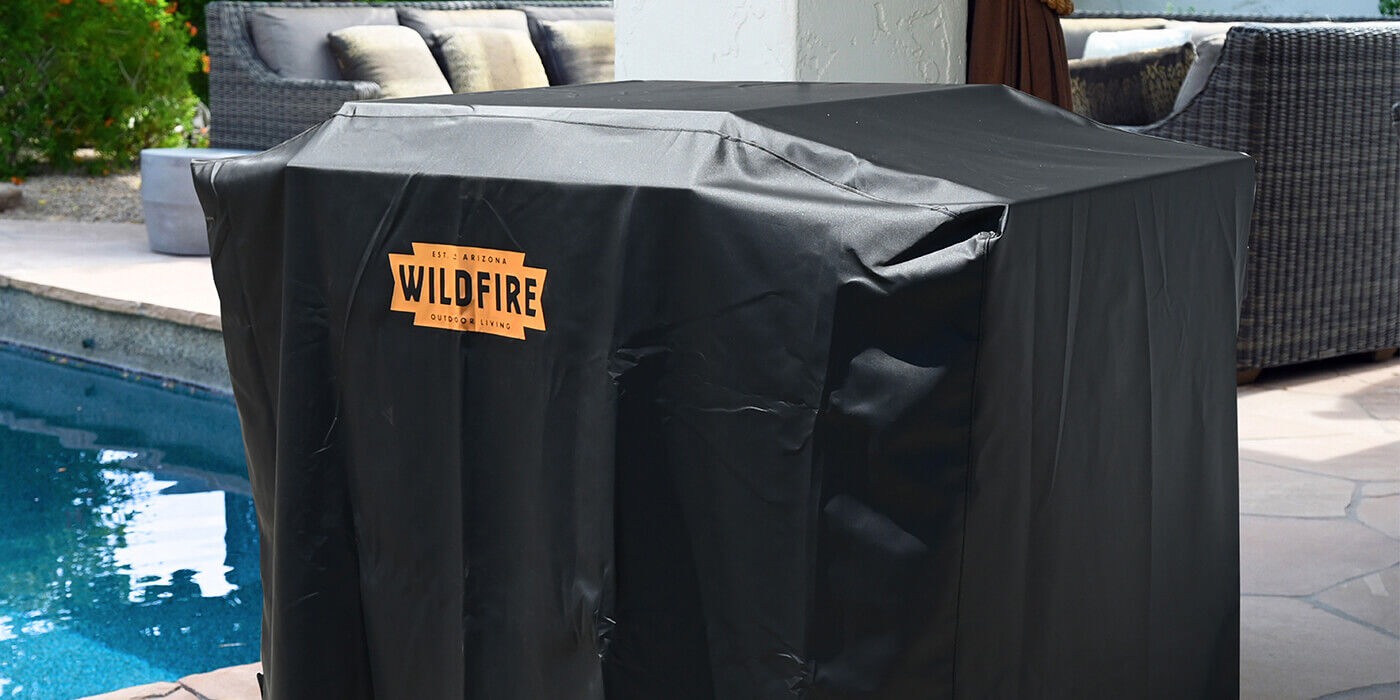By: Thomas Kearney, NFI Certified Master Hearth Professional
Last Updated: July 24, 2025
There’s nothing quite like firing up the BBQ grill in the spring and summer seasons.
Whether you're using a propane grill, charcoal grill, pellet grill, or flat top grill, keeping your setup clean is essential for delicious food, safety, and long-term performance.
If you want to avoid leftover debris, gunk, and grime on your steaks, burgers, or veggies, it’s time to master the grill cleaning process.
In this guide, we’ll walk you through how to inspect, wash, and store your grill like a pro, no matter what model you have.
Inspect and Clean Your Grill Before BBQ Season
Before you’re ready for cookouts, there are a few things you need to do to prep your grill.
Gas Grills
If your gas grill has been in storage, give it a full inspection. Look for buildup, cobwebs, or insects around the grill grates and burner area.
Wipe down the inside and outside using warm, soapy water and a soft rag or microfiber cloth. You can clean the grill grates with a non-wire brush, scraper, or grillstone.
Avoid using a wire brush; the bristles can break off and cause serious injury if ingested. If you didn’t scrub off the grates before storing your grill for the off-season, they may need to be soaked.
For aluminum and stainless steel grates, soak them in hot water mixed with a few drops of dish soap.
Cast iron grates cannot be soaked. Instead, burn off the residue by heating the grill for 15-20 minutes on high heat, then scrub them using a bristle brush and season them with vegetable oil.
Gas Safety Check
Inspect your Propane tank or Natural Gas hose for cracks or holes. You can test for leaks by spraying soapy water on the hose. If bubbles appear, it’s time for a replacement.
Clean up your flavorizer bars, drip pan, and the bottom of the grill using a grill cleaner, degreaser, or a DIY mix of vinegar and baking soda.
Charcoal Grills
Just like a gas grill, inspect your charcoal grill for debris, cobwebs, and insects after you take it out of storage. Wipe down the inside and outside using warm, soapy water.
You can also build a fire inside your grill and let it burn for about half an hour. This will bake off any food scraps or grease stuck to your grates and the inside walls or bottom of the grill.
If you have aluminum grates, you can remove them and soak them in hot, soapy water. Otherwise, use your non-wire brush, scraper, or grillstone to scrape away any remaining debris.
We also recommend greasing your grates with vegetable oil. This prevents food from sticking when you fire up your grill for the first time.
Pro Tip:
We do not recommended using a wired grill brush to clean your grates. The bristles can break off and end up in your food, resulting in a serious health risk.
Extend the Life of Your Grill with Routine Cleaning
Prolong the life of your gas or charcoal grill with the following routine maintenance steps.
Gas Grills
Each time you ignite your gas grill, pre-heat it for about 10-15 minutes. This helps loosen any leftover food scraps stuck to the grates. Scrape off your grates with a non-wire brush, scraper, or grillstone before you start cooking.
Since all the grease will accumulate in the drip tray, you’ll need to empty it out after every use. An overfilled drip tray can create a huge mess and affect the performance of your grill.
Regularly clean the inside your grill lid, too. Carbon can build up after a few cooking sessions, which may flake off into your food if you don’t remove it.
Quick Cleaning Checklist:
✅ Preheat before every use to loosen food scraps.
✅ Use a grill brush, scraper, or grillstone to clean grill grates after each session.
✅ Empty the drip pan regularly.
✅ Wipe down the lid to prevent carbon buildup that can flake off into your food.
Charcoal Grills
Charcoal grills can generate a lot of debris. Empty the ash receptacle regularly to prevent it from blocking the air vents. If they’re clogged, it can be difficult to control the grill temperature.
Wipe out the inside of your grill lid every few weeks to prevent ash, grease, and other debris from building up. When your grill is cool enough, you can use a clean rag and your water/dish soap mixture.
After each use, while the grill is still warm, scrape the grate clean. The heat makes it easier to remove food residue and grease. We also recommend oiling your grates after cleaning them off to prevent food from sticking and protect them from rust.
Quick Cleaning Checklist:
✅ Remove ash frequently to avoid airflow blockages.
✅ Clean the interior with soapy water every few weeks.
✅ After each use, scrape grates while still warm and re-oil with vegetable oil to prevent rust.
Clean, Cover, and Store Your BBQ Grill for Winter
Follow these tips to keep your grill in great condition during the winter months.
Gas Grills
Before storing your grill for the winter months, remove any residue from your grates with a non-wire brush, scraper, or grillstone. Additionally, wipe down your grill with warm, soapy water from the inside out.
Remove your aluminum grates and drip tray to soak them in hot water, or pre-heat your cast iron grates and scrape them clean. Be sure to wipe down the inside walls and bottom of your grill, too.
Prior to packing your grill away, inspect the burners to make sure they aren’t clogged. With your grates removed, ignite your burners and monitor the flames. An uneven flame pattern will indicate dirty burners. Use a small pipe cleaner or a small brush to clean the ports along the side of the burners.
Once your grill is clean and completely dry, you can reassemble your components. Then, disconnect your gas supply and store your grill in a cool, dry place until the next grilling season. We also recommend purchasing a fitted, weatherproof cover for your grill.
Charcoal Grills
Remove all the ashes from your charcoal grill and give it a thorough wash from the inside out with warm, soapy water. Heat your grill up to burn off residue from cast-iron grates or remove aluminum grates and soak them in hot water.
When your grill is dry, replace the grates and make sure they’re well-oiled. Then, cover your charcoal grill with a fitted, weatherproof cover and store it in a cool, dry place. When you’re ready to bring it out again, your pre-season maintenance will be a breeze!
Expert Cleaning Tips
💡Avoid wire brushes. Instead, use bristle-free, long-handled tools for safer cleaning.
💡 Use heavy-duty degreaser for stubborn gunk.
💡 A DIY mix of baking soda, dish soap, and vinegar makes a powerful, natural grill cleaner.
💡 Use oven cleaner only for extreme cases—and rinse thoroughly.
💡 Use elbow grease for the tough spots, but don’t forget a soft paper towel or microfiber cloth for the finishing touches.
FAQs
Yes, ball up aluminum foil and use it with tongs to scrub hot grates. It’s a quick DIY cleaning hack when you don’t have a grill brush on hand. Be cautious to avoid leaving any foil fragments behind.
Slide out the drip pan and empty it. Soak in hot, soapy water or spray with degreaser. Use a scraper or scouring pad to remove buildup, then rinse and dry before replacing.
For optimal performance and flavor, do a quick wipe down with a grill brush or foil ball after every use. Do a deep clean every 4–5 uses or at the start of grilling season.
Always preheat to burn off food residue, clean grates after each use, and empty the drip pan regularly. A grill cover helps prevent dirt and moisture buildup when not in use.
Use dish soap, degreaser, grill cleaner, or a mix of baking soda and hot water for natural scrubbing power. Avoid harsh chemicals unless labeled safe for BBQ grills.
We're Here to Help
Have any questions about cleaning your grill? Call our team of NFI certified experts today at 800.919.1904.
More Resources
Discover what grill styles are available with our Grill Buying Guide.
Buying a new grill? Here are seven important things to consider.
Discover the differences between ready-to-finish and custom-built outdoor kitchens.
 |
Tom Kearney has been a Technical Sales Representative at Woodland Direct for over a decade, where he has honed his expertise in gas, wood, and pellet appliances as an NFI-Certified expert. Tom's dedication to customer satisfaction is exemplified by his work with high-profile clients, including assisting SpaceX President Gwynne Shotwell in sourcing five stunning fireplaces for her Texas home. When he's not helping clients find their perfect fireplace, Tom enjoys hitting the golf course, skiing down snowy slopes, and exploring new trails on his bike. Call him or one of our experts in fire at 800.919.1904. |



